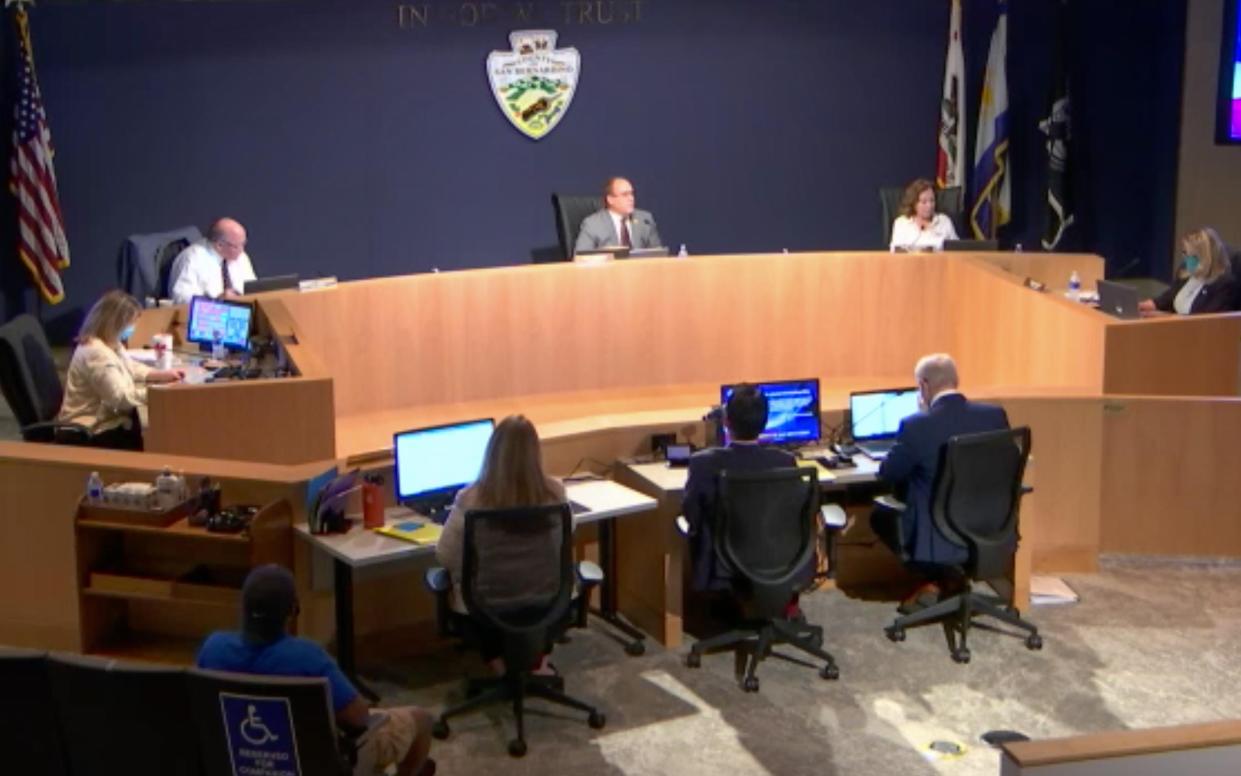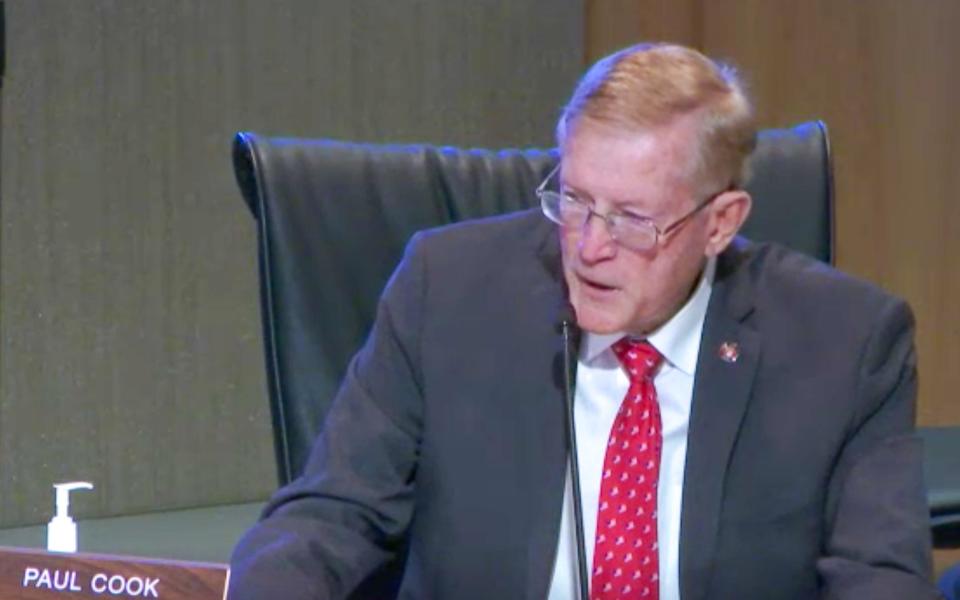Court tentatively upholds measure which caps San Bernardino County supervisors' pay at $60k

A measure which would reduce a San Bernardino County supervisor’s pay to $5,000 a month and impose a lifetime one-term limit was found to be constitutional in a tentative decision by a state appeals court earlier this month.
Measure K — which voters approved by a 2 to 1 margin in November 2020 — was temporarily blocked when the county’s Board of Supervisors sued to keep it from being enacted.
A San Bernardino Superior Court judge ruled last year that though voters could legally decide on how much a supervisor gets paid, a one-term limit was unconstitutional and made the entire measure invalid.
Judges for the California’s 4th District Court of Appeal issued an opinion on July 12 which would allow Measure K to be put in force if the ruling is finalized.
The court has invited both the county and the proponents of Measure K to participate in oral argument before it makes a final decision.
A hearing has yet to be scheduled.
'Four years is ample time'
In November 2020, Measure K passed with 66.84% of voters in favor.
The Red Brennan Group — a nonprofit that gathered the signatures necessary to place the measure on the ballot — has argued that supervisors are overcompensated for duties they relegated to the county CEO, a contention the county has disputed.
In 2021, each supervisor made at least more than $250,000 in total salary and benefits, according to public payroll records.
The measure’s advocates also believe limiting a supervisor to four years in office would make them more responsive to the needs of county residents as they wouldn’t be concerned with re-election.
Superior Court Judge Donald Alvarez ruled last year in August that the one-term limit did not necessarily prevent distraction and did not provide a supervisor “sufficient time in the governing position.”
He also wrote that the limit “imposes a burden that does not reasonably justify the infringement on voter’s and incumbents’ 1st and 14th amendment rights.”
The appeals court disagreed with Alvarez and wrote it did not find any “constitutionally significant” difference between a one-term limit and limits imposed on state senators (two 4-year terms) and assemblymembers (three 2-year terms).
“Four years is ample time for a supervisor to at least attempt to tick off all the boxes on his or her legislative to-do list,” the court added. “The Board (of Supervisors) does not point to anything that a supervisor could accomplish in six or eight years but not in four.”
The appeals court also noted that voters “overwhelmingly preferred” Measure K to Measure J, which was also on the 2020 ballot, a measure backed by the Board of Supervisors.
Measure J also passed, but only by a simple majority of a little over 50%. It amended the county charter and also addressed supervisors’ compensation requiring that their salaries be set at 80% of that of a Superior Court judge’s and imposed a limit of three total terms.
Court rejects supervisors' pay arguments
As to the compensation limit, the Board of Supervisors argued voters couldn’t set their pay due to a bill that passed last year.
Assembly Bill 428 requires supervisors be classified as county officers, which essentially allows them to set their own compensation. The law also mandates that when term limits are proposed by voters on county supervisors, they be at least two terms.
The appeals court found, however, that AB 428 was never meant to apply to charter counties like San Bernardino, citing analyses from the California Legislature.
The judges also rejected the Board’s arguments that limiting a supervisor’s pay to $60,000 a year violates minimum wage laws and makes supervisors part-time workers or overturns a county ordinance requiring supervisors to be provided with certain benefits.

If the tentative opinion is finalized, Measure K’s compensation limit would not apply to supervisors elected in 2020 due to a statute, however, the appeals court wrote.
3rd District Supervisor Dawn Rowe was re-elected that year, while Paul Cook and Joe Baca Jr. each became new representatives for the county’s 1st and 5th District respectively.
County spokesperson David Wert wrote in an email last week that the county was “evaluating what the next steps might be to protect its ability to effectively serve the public.”
“As the largest county in the United States, and the fifth largest county by population in California, supervisors currently work full-time to ensure appropriate focus is provided to govern a large and complex organization,” he added. “Measure K raises serious concerns as to how part-time supervisors would be able to ensure services are delivered to our residents.”
Daily Press reporter Martin Estacio may be reached at 760-955-5358 or MEstacio@VVDailyPress.com. Follow him on Twitter @DP_mestacio.
This article originally appeared on Victorville Daily Press: Court upholds measure capping San Bernardino County supervisors' pay at $60k

